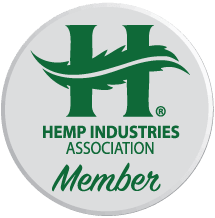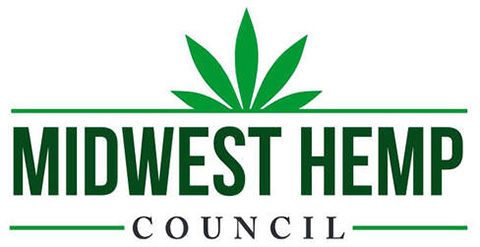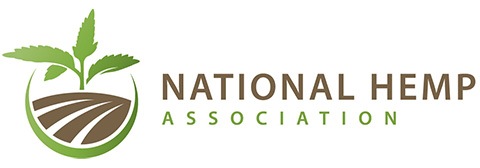


What is the legal future of delta-8 THC? Delta-8 THC – also known colloquially as delta-8 or D8 – is an intoxicating cannabinoid that is currently being manufactured from hemp-derived CBD. Delta-8 THC products are sold nationwide and occupy a legal gray area, while remaining popular in states where high-THC marijuana remains illegal.
In this article, Hemp Benchmarks provides an overview of how U.S. government bodies have addressed delta-8 THC and the uncertain legal interpretations resulting from statements made by one federal agency in particular. Meanwhile, a patchwork of state policies on delta-8 and similar compounds continues to develop. In this shifting landscape, hemp-cannabinoid businesses are being forced to weigh their tolerance for risk when deciding to deal in questionably legal, but unquestionably lucrative products.
A handful of federal agencies have weighed in on the delta-8 THC controversy, but an answer to questions regarding delta-8’s legality remains elusive, as does a definitive regulatory framework. Instead, the most direct comments on delta-8 THC products coming from the U.S. government have been warnings regarding potential adverse health reactions from using unregulated products.
In mid-September, the U.S. Food and Drug Administration (FDA) and the Centers for Disease Control and Prevention (CDC) published warnings regarding delta-8 THC products. In its Health Advisory, the CDC notes that the unregulated nature of delta-8 THC could lead to “unexpected effects” for some consumers, including documented cases where delta-8 consumers have needed hospital or emergency department treatment. The FDA, meanwhile, warns that some manufacturers “may use potentially unsafe household chemicals to make delta-8 THC through this chemical synthesis process.”
Shawn Hauser, a partner at Denver-based Vicente Sederberg and co-chair of the law firm’s Hemp and Cannabinoids Department, believes such advisories, although limited in their effectiveness, remain important for overall consumer safety while emphasizing the importance of state regulatory efforts. “With any consumable product, especially those that may be intoxicating, there’s a need for manufacturing and testing and packaging and labelling standards,” she told Hemp Benchmarks. “That’s the purpose of the federal and state food and drug laws.”
However, she added, “because the FDA evaluates how it’s ultimately going to regulate hemp-derived cannabinoids under food and drug laws, they have declined to enforce federal law in this area. So it’s really fallen on the states to make sure regulations and consumer protections are in place.”
Of course, delta-8 THC must be legal for it to be regulated under food and drug laws, and drug enforcement is the purview of the U.S. Drug Enforcement Administration (DEA). For the past six months or so, the DEA has listed delta-8 THC under “Tetrahydrocannabinols” in its “Orange Book” of Controlled Substances. Prior to that, in August 2020, the DEA issued an Interim Final Rule (IFR) “to codify in the [DEA] regulations the statutory amendments to the Controlled Substances Act (CSA) made by the Agriculture Improvement Act of 2018 (AIA), regarding the scope of regulatory controls over marihuana, tetrahydrocannabinols, and other marihuana-related constituents.”
In other words, the purpose of the DEA IFR was to update the agency’s rules in light of the 2018 AIA, or Farm Bill, which legalized hemp. Notably, the 2018 Farm Bill defines hemp as “the plant Cannabis sativa L. and any part of that plant, including the seeds thereof and all derivatives, extracts, cannabinoids, isomers, acids, salts, and salts of isomers, whether growing or not, with a delta-9-tetrahydrocannabinol concentration of not more than 0.3 percent on a dry weight basis.”
The preceding language indicates that any cannabinoids derived from hemp other than delta-9 THC above 0.3% potency by dry weight are legal, including delta-8 and various other forms of THC. However, the DEA IFR also states. “All synthetically derived tetrahydrocannabinols remain schedule I controlled substances.”
As we have covered previously, the vast majority, if not all, of the delta-8 THC being sold today is not extracted from cannabis plants, which produce only trace amounts of the compound, if any. Instead it is manufactured from hemp-derived CBD via chemical processes. “Whether such process renders the substance “synthetic” has been the subject of much legal debate,” Shawn Hauser wrote in an email.
Hauser pointed out that the DEA IFR “indicates that synthetic compounds are considered Schedule I substances regardless of THC content, which many interpreted to mean that the 2018 Farm Bill did not impact the control of synthetically derived THCs or other cannabinoids.” She continued, “However, the DEA had not defined the term ‘synthetic,’ specifically as relevant to the cannabis plant, creating much confusion as to whether all, or some, [delta-8] is considered synthetic because of the process in which it is commercially produced or when derived from a non-cannabis source.”
DEA officials have for the most part declined to elaborate on the August 2020 IFR, noting that the proposed regulations are part of an ongoing rulemaking process. However, DEA officials have recently made two separate public statements regarding delta-8’s legality.
In early November, the Kight Law Office’s Kight on Cannabis blog called attention to the DEA’s public statements on delta-8 THC. One of the statements occurred during a video webinar conducted in June by the Florida Department of Agriculture and Consumer Services (FLDACS). During the webinar, Sean Mitchell, DEA Chief of Intergovernmental Affairs, was asked if delta-8 was legal to be sold in Florida. Mitchell responded by saying that “per the Farm Bill, the only thing that is a controlled substance is delta-9 THC greater than 0.3% on a dry-weight basis.”
The second statement noted by Kight was made this past September in a letter from Terrence L. Boos, Chief of the DEA’s Drug and Chemical Evaluation Section, to the Alabama Board of Pharmacy (ABOP). ABOP requested clarification from the DEA on the status of delta-8 THC under the federal CSA. In his response, Boos wrote that “cannabinoids extracted from the cannabis plant that have a [delta-9] THC concentration of not more than 0.3 percent on a dry weight basis meet the definition of ‘hemp’ and thus are not controlled under the CSA.”
The September DEA letter to ABOP appears to confirm that delta-8 THC extracted directly from cannabis plant material is legal so long as it has a delta-9 THC concentration under 0.3%. However, questions regarding whether the delta-8 being sold today is legal still appear to hinge on whether the DEA considers the chemical process used to manufacture it from hemp-derived CBD as resulting in a synthetic cannabinoid. Earlier in the letter, Boos writes, “[delta-8] THC synthetically produced from non-cannabis materials is controlled under the CSA as ‘tetrahydrocannabinol.’”
Kight takes the DEA letter to ABOP to mean that delta-8 THC produced from hemp-derived CBD is legal, apparently under the assumption that “cannabis materials” includes hemp-derived CBD. Shawn Hauser also weighed in on the letter, writing in an email, “I agree that the DEA appears to confirm in the September 15, 2021 letter to the [ABOP] that [delta-8] produced from non-cannabis materials is considered synthetic. It is unclear to me whether this is intended to mean that all cannabis derived [delta-8] THC, regardless of production process, is therefore not considered synthetic – but the letter does appear to suggest this.”
Hauser concluded by stating, “Given the conflicting statements by the DEA, agency action and clarity … as to the legal status of hemp-derived [delta-8] is needed.” In other words, while some in the hemp and cannabis industries are taking the recent DEA statements to mean that delta-8 THC made from hemp-derived CBD is legal, uncertainty still remains.
As we have covered over the past several months, a growing number of states have enacted their own restrictions or bans on delta-8, in efforts to establish regulations for their local markets in the absence of any concrete direction from the federal government regarding the compound. Meanwhile, new state laws for delta-8 products continue to be debated, disputed, and, in some cases, contested vigorously.
In early November, and after several months of consideration, the New York State Cannabis Control Board approved regulations presented by the Office of Cannabis Management to establish the state’s cannabinoid hemp program. The new regulations explicitly prohibit the sale of delta-8 products in the state, but in its announcement the Office added that it does not regulate delta-8 products available online or in stores today. It also noted that such products “are better left to be regulated in the future Adult-use [cannabis] program.”
Other states – including, but not limited to Michigan, Oregon, and Connecticut – have done just that; namely, limited the production and sale of delta-8 THC products to their existing or future adult use cannabis markets, or charged the regulatory bodies that control those markets with oversight of delta-8 THC.
Still other states have banned the cannabinoid and related compounds outright, or at least attempted to do so. In Texas, for example, the ongoing dispute over delta-8’s legality appears to take a new turn every several weeks. In mid-October the Texas Department of State Health Services (DSHS) announced on its website that all forms of THC, “including Delta-8 in any concentration,” are considered Schedule I controlled substances.
Soon after that announcement, an Austin-based CBD retailer filed a lawsuit against DSHS, calling for a temporary restraining order (TRO) against the delta-8 rule change. At the end of October a state district judge denied that TRO. Then, on November 8, another district judge reversed the earlier ruling. According to the Houston Chronicle, the temporary injunction will now remain in effect “until a full trial determines if the [DSHS] followed the law,” when it ruled that delta-8 THC was to be considered an illegal substance.
Shawn Hauser believes that states will remain essential testing grounds regarding delta-8 regulations, at least until the FDA and other federal agencies finally take charge of the issue. She told Hemp Benchmarks, “the states have had to step in. In many cases the state laws conflict with federal law, but the federal government is letting states experiment in this area. I think that has, in the cannabis industry, actually proven to be an effective way to inch out of prohibition for the plant.”
Hauser said some states must be credited for adopting smart manufacturing and safety regulations for delta-8, “and in some cases acting as sort of mini-FDAs, trying to do the research to understand where safety levels are. Ultimately those state laws will inform a responsible federal law.”
Regardless of legal uncertainty at the federal level, businesses are forging ahead and delta-8 THC’s popularity – along with that of other forms of THC manufactured chemically from hemp-derived CBD, such as delta-10 THC, THCO, and THCP – is reportedly growing. Yet, as states attempt to hammer out new delta-8 laws, many retail stores that sell hemp-derived cannabinoids have found themselves in legal limbo, scrambling to determine whether their products remain on the right side of the law.
“It certainly affected commerce,” Shawn Hauser noted. “Some companies are certainly moving forward with their delta-8 operations; taking the position that it’s legal … others are aware of the seizures [of delta-8 products by law enforcement] and adverse events, which of course have very serious implications.”
While more states outright prohibit delta-8 or limit sales to cannabis stores, online direct-to-consumer sales are continuing apace. Despite growing revenues, Hauser pointed out that companies dealing in delta-8 THC and similar cannabinoids may run into other issues. Specifically, she noted that many delta-8 THC producers and retailers will be unable to assure their investors, insurance companies, suppliers, and other related businesses that their operations are legal. This, Hauser said, will in turn impact the overall hemp industry.
“Delta-8 is one of the products that have been helping the hemp sector to survive in light of regulatory uncertainty,” she continued. “That affects a lot of great businesses out there, that are helping to shape the policy and do this right.”
Hemp Benchmarks publishes wholesale prices for delta-8 THC distillate and delta-10 THC distillate in our monthly Hemp Spot Price Index Reports


